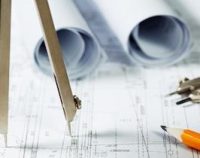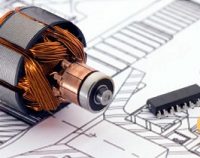Showing all 10 results
Pennsylvania-Civil Engineering Package #3: 24 PDH
$144.00Original price was: $144.00.$80.00Current price is: $80.00. Add to cartFive Civil Engineering courses plus Pennsylvania Rules, Regulations & Ethics course that will earn 24 PDH guaranteed to be accepted by the Pennsylvania State Board of Professional Engineers, Land Surveyors, and Geologists.Instructor: Raymond Bosek, PEPennsylvania – Rules, Regulations and Ethics for Professional Engineers: 3 PDH
In this course the student will study the Pennsylvania State Board of Professional Engineers, Land Surveyors, and Geologists Statutes & Regulations, including Professional Engineering Ethics.
Bridge Steels and their Mechanical Properties: 4 PDH
In this course the student will gain a comprehensive understanding of the types, properties, manufacturing processes, and performance characteristics of structural steels used in bridge construction. They will understand how various steel grades are selected based on mechanical properties, environmental conditions, and fabrication needs.
Continuously Reinforced Concrete Pavement: 5 PDH
In this course the student will understand the design, construction, maintenance, and rehabilitation of Continuously Reinforced Concrete Pavement (CRCP). They will grasp the critical principles governing CRCP performance, including crack control, reinforcement detailing, and the role of materials and environmental conditions in long-term pavement behavior.
Engineering Green Streets: 3 PDH
In this course the student will understand how to integrate green infrastructure practices into public rights‑of‑way—roads, alleys, sidewalks and parking areas—to better manage stormwater and too acquire the practical tools to design, implement and maintain effective, context‑sensitive stormwater solutions in transportation corridors.
Roller-Compacted Concrete : 5 PDH
In this course the student will understand the principles, methods, and considerations involved in the use of roller-compacted concrete (RCC) for civil works structures, particularly dams. They will gain foundational knowledge of material properties, mix design, construction techniques, and quality assurance protocols essential to RCC implementation.
Ultra-High Performance Concrete (UHPC): 4 PDH
In this course the student will understand the unique properties, design implications, and practical applications of Ultra-High Performance Concrete (UHPC), particularly in bridge infrastructure. They will grasp how UHPC differs from conventional concrete, including its superior strength, durability, and performance in extreme conditions.
Pennsylvania-Civil Engineering Package #2: 24 PDH
$144.00Original price was: $144.00.$80.00Current price is: $80.00. Add to cartFive Civil Engineering courses plus Pennsylvania Rules, Regulations & Ethics course that will earn 24 PDH guaranteed to be accepted by the Pennsylvania State Board of Professional Engineers, Land Surveyors, and Geologists.Instructor: Raymond Bosek, PEPennsylvania – Rules, Regulations and Ethics for Professional Engineers: 3 PDH
In this course the student will study the Pennsylvania State Board of Professional Engineers, Land Surveyors, and Geologists Statutes & Regulations, including Professional Engineering Ethics.
Accident and Operational Safety Analysis: 4 PDH
In this course the student will understand the fundamental concepts of accident dynamics, accident prevention, and accident analysis. The student will learn the theoretical bases of safety management and accident analysis, and the practical application of a Safety Management framework for an organization.
Gravel Road Construction: 4 PDH
It is estimated that over a third of the 4.09 million miles of roadway in the United States are not paved. These are typically unpaved gravel or dirt roads, and they’re mostly located throughout rural areas and communities where the volume of traffic is so low that paving and maintaining a paved road is not economically feasible. In this course the student will understand basic concepts in designing and maintaining gravel surfaced roads and essential tips to ensure lasting performance.
Lessons Learned-Design and Construction of Buildings: 3 PDH
In this course the student will review lessons learned from post building occupancy evaluations to understand common building design and/or construction flaws and review essential tips to correct, avoid and/or mitigate these occurrences.
Residential Structural Design: 5 PDH
In this course the student will understand the basics of residential construction and design, residential structural design concepts and design loads for residential buildings and to gain an understanding of modern design methods and concepts for light-frame homes, apartments, and townhouses.
Sustainable Concrete Pavements: 5 PDH
In this course the student will understand concrete pavement sustainability concepts and recommended practices for maximizing the sustainability of concrete pavements.
Preview Course: Pennsylvania Rules, Regulation and Ethics
Preview Course: Accident and Operational Safety Analysis
Preview Course: Gravel Road Construction
Preview Course: Lessons Learned-Design and Construction of Buildings
Preview Course: Residential Structural Design
Preview Course: Sustainable Concrete PavementsPennsylvania-Civil Engineering Package: 24 PDH
$144.00Original price was: $144.00.$80.00Current price is: $80.00. Add to cartFive Civil Engineering courses plus Pennsylvania Rules, Regulations & Ethics course that will earn 24 PDH guaranteed to be accepted by the Pennsylvania State Board of Professional Engineers, Land Surveyors, and Geologists.Instructor: Raymond Bosek, PEPennsylvania – Rules, Regulations and Ethics for Professional Engineers: 3 PDH
In this course the student will study the Pennsylvania State Board of Professional Engineers, Land Surveyors, and Geologists Statutes & Regulations, including Professional Engineering Ethics.
Stress and Strain in Soils: 4 PDH
In this course the student will understand the properties and mechanics of soils and accurately calculate the stresses and deformations of soil masses.
Geotechnical Subsurface Exploration for Roadways: 5 PDH
In this course the student will understand the essentials of subsurface explorations for roadways with a comprehensive overview including site preparation, sampling methods, types of testing and methods, as well as standard guidelines and recommendations.
Engineering Description of Soils and Rocks: 4 PDH
In this course the student will understand the engineering characteristics of soils and rocks and to how to properly identify and classify to develop a subsurface profile for site evaluations.
Slope Stability in Embankments and Structures: 5 PDH
In this course the student will understand the design of slope stability in embankments and structures and how to recognize, analyze, and solve slope instability issues encountered.
Strategies for Improving Sustainability of Asphalt Pavements: 3 PDH
In this course the student will understand sustainability throughout the entire pavement life cycle and the importance of recognizing context sensitivity and assessing trade-offs in developing sustainable solutions.
Preview Course: Pennsylvania Rules, Regulation and Ethics
Preview Course: Stress and Strain in Soils
Preview Course: Geotechnical Subsurface Exploration for Roadways
Preview Course: Engineering Description of Soils and Rocks
Preview Course: Slope Stability in Embankments and Structures
Preview Course: Strategies for Improving Sustainability of Asphalt PavementsPennsylvania-Electrical Engineering Package #3: 24 PDH
$144.00Original price was: $144.00.$80.00Current price is: $80.00. Add to cartFive Electrical Engineering courses plus Pennsylvania Rules, Regulations & Ethics course that will earn 24 PDH guaranteed to be accepted by the Pennsylvania State Board of Professional Engineers, Land Surveyors, and Geologists.Instructor: Juan Pesante, PEPennsylvania – Rules, Regulations and Ethics for Professional Engineers: 3 PDH
In this course the student will study the Pennsylvania State Board of Professional Engineers, Land Surveyors, and Geologists Statutes & Regulations, including Professional Engineering Ethics.
AI/ML Technology in Power System Applications: 5 PDH
In this course the student will understand the role, potential, and challenges of Artificial Intelligence (AI) and Machine Learning (ML) technologies in modern power system applications. They will gain knowledge of various AI/ML techniques, their practical uses in grid operations, and the importance of safety, security, and trust in deploying these technologies within critical infrastructure
Grid-Scale Energy Storage Technologies: 4 PDH
In this course the student will gain a comprehensive understanding of current and emerging grid-scale energy storage technologies, their operational characteristics, applications, and the role these technologies play in enhancing power system flexibility and supporting renewable energy integration.
Lightning Protection Design and Standards: 5 PDH
In this course the student will understand the principles, standards, risks, and design methods of lightning protection systems, including external and internal protection strategies, materials selection, and risk assessment based on IEC 62305 standards.
Renewable Energy – Ocean Energy Technology: 3 PDH
In this course the student will gain a comprehensive understanding of the principles, technologies, and challenges involved in harvesting ocean energy—wave, tidal, marine current, and ocean thermal energy—and their potential for integration into national renewable energy strategies.
Solid State Power Substation Technology: 4 PDH
In this course the student will understand the design, function, and transformative role of Solid State Power Substations (SSPS) in the evolving power grid. They will grasp challenges of legacy substations, the role of power electronic converters, and how SSPS enables resilient, secure, and flexible grid architectures
Preview Course: Pennsylvania Rules, Regulation and Ethics
Preview Course: AI/ML Technology in Power System Applications
Preview Course: Grid-Scale Energy Storage Technologies
Preview Course: Lightning Protection Design and Standards
Preview Course: Renewable Energy – Ocean Energy Technology
Preview Course: Solid State Power Substation TechnologyPennsylvania-Electrical Engineering Package #2: 24 PDH
$144.00Original price was: $144.00.$80.00Current price is: $80.00. Add to cartFive Electrical Engineering courses plus Pennsylvania Rules, Regulations & Ethics course that will earn 24 PDH guaranteed to be accepted by the Pennsylvania State Board of Professional Engineers, Land Surveyors, and Geologists.Instructor: Juan Pesante, PEPennsylvania – Rules, Regulations and Ethics for Professional Engineers: 3 PDH
In this course the student will study the Pennsylvania State Board of Professional Engineers, Land Surveyors, and Geologists Statutes & Regulations, including Professional Engineering Ethics.
2023 NEC Significant Code Changes Part 1: 4 PDH
Part 1 of a three part series, this four (4) hour course covers and highlights some of the significant changes and updates in the 2023 Edition of NFPA 70: National Electrical Code (NEC) which was recently updated from the 2020 Edition of NFPA 70: National Electrical Code (NEC).
2023 NEC Significant Code Changes Part 2: 4 PDH
Part 2 of a three part series, this four (4) hour course covers and highlights some of the significant changes and updates in the 2023 Edition of NFPA 70: National Electrical Code (NEC) which was recently updated from the 2020 Edition of NFPA 70: National Electrical Code (NEC).
Blockchain Technology Overview: 3 PDH
In this course the student will be introduced to Blockchain technology, from its history and beginnings, through the various components, models, and make-up and finally its applications and limitations.
Electrical Safety: 5 PDH
In this course the student will understand the dangers and hazards when working with or near electrical power and approaches to work safely to avoid serious injury.
Forecasting Solar Radiation and Photovoltaic Power: 5 PDH
Solar resource forecasting is critical for the operation and management of solar power plants and electric grids. In this course the student will understand the basic concepts and various methods of solar irradiance forecasting as well as forecasting the power production of Photovoltaic (PV) power plants.
Preview Course: Pennsylvania Rules, Regulation and Ethics
Preview Course: 2023 NEC Significant Code Changes Part 1
Preview Course: 2023 NEC Significant Code Changes Part 2
Preview Course: Blockchain Technology Overview
Preview Course: Electrical Safety
Preview Course: Forecasting Solar Radiation and Photovoltaic PowerPennsylvania-Electrical Engineering Package: 24 PDH
$144.00Original price was: $144.00.$80.00Current price is: $80.00. Add to cartFive Electrical Engineering courses plus Pennsylvania Rules, Regulations & Ethics course that will earn 24 PDH guaranteed to be accepted by the Pennsylvania State Board of Professional Engineers, Land Surveyors, and Geologists.Instructor: Juan Pesante, PEPennsylvania – Rules, Regulations and Ethics for Professional Engineers: 3 PDH
In this course the student will study the Pennsylvania State Board of Professional Engineers, Land Surveyors, and Geologists Statutes & Regulations, including Professional Engineering Ethics.
Analysis of National Charging infrastructure for Electric Vehicles: 3 PDH
This courses addresses the fundamental question of how much plug-in electric vehicle (PEV) charging infrastructure is needed in the United States to support both plug-in hybrid electric vehicles (PHEVs) and battery electric vehicles (BEVs). In this course the student will understand PEV charging infrastructure requirements and analyze a range of plausible scenarios that consider the relationship between the evolution of the PEV fleet and charging infrastructure.
Compressed Air Energy Storage and Pumped Storage Hydropower Concepts: 4 PDH
In this course the student will understand understand current Compressed Air Energy Storage (CAES) and Pumped Storage Hydropower (PSH) technologies and explore future advances of this technology by examining the feasibility of a variety of different concepts.
Energy Storage Technology Cost and Performance: 4 PDH
In this course the student will understand a variety of different energy storage technologies and explore their advantages and disadvantages with an in-depth cost and performance comparison. This course follows the report: Energy Storage Technology and Cost Characterization Report, published by the U.S. Department of Energy (DOE).
Electrical Storage Guide for Electrical Engineers: 5 PDH
This course provides a thorough overview of current electrical storage technologies including batteries, flywheels, compressed air energy storage (CAES), and pumped storage hydropower (PSH) and is a how-to guide for engineers to aid in the selection, procurement, installation, and/or operation of stationary energy storage systems in today’s electric grid.
Electrification-Power System Evolution and Infrastructure Development: 5 PDH
In this course the student will understand Electrification, the shift from non-electric to electric sources of energy at the point of final consumption, and an analysis of the potential impacts of widespread electrification on the evolution of the U.S. electricity system. This course follows the guide: Electrification Futures Study: Scenarios of Power System Evolution and Infrastructure Development for the United States, published by the National Renewable Energy Laboratory.
Preview Course: Pennsylvania Rules, Regulation and Ethics
Preview Course: Analysis of National Charging infrastructure for Electric Vehicles
Preview Course: CAES and PSH Concepts
Preview Course: Energy Storage Technology Cost and Performance
Preview Course: Electrical Storage Guide for Electrical Engineers
Preview Course: Electrification-Power System Evolution and Infrastructure DevelopmentPennsylvania-Mechanical Engineering Package #3: 24 PDH
$144.00Original price was: $144.00.$80.00Current price is: $80.00. Add to cartFive Mechanical Engineering courses plus Pennsylvania Rules, Regulations & Ethics course that will earn 24 PDH guaranteed to be accepted by the Pennsylvania State Board of Professional Engineers, Land Surveyors, and Geologists.Instructor: Seth Grablow, PEPennsylvania – Rules, Regulations and Ethics for Professional Engineers: 3 PDH
In this course the student will study the Pennsylvania State Board of Professional Engineers, Land Surveyors, and Geologists Statutes & Regulations, including Professional Engineering Ethics.
Continuous Energy Improvement in Motor Driven Systems: 5 PDH
In this course the student will understand the principles, strategies, and best practices for achieving continuous energy improvement in motor-driven systems. They will learn how to develop and implement motor management programs, assess motor system efficiency, apply energy-saving technologies, and adopt life-cycle cost approaches to decision-making.
Fuel Cell Technology and Performance: 4 PDH
In this course the student will understand the fundamental principles, design, operation, and performance characteristics of various fuel cell technologies, including their system components, fuel processing, and real-world applications.
Geothermal Heat Pump Systems: 4 PDH
In this course the student will understand how geothermal (geoexchange) heat pump systems function, including heat transfer mechanisms, system components, ground loop configurations, performance considerations, and environmental and economic impacts.
Introduction to Composite Materials: 3 PDH
In this course the student will understand the fundamental concepts, structures, classifications, and applications of composite materials. They will learn how different fibre and matrix combinations influence properties, and they will grasp the benefits and limitations of thermoset and thermoplastic composites as well as reinforcement mechanisms.
Vacuum Technology and Applications: 5 PDH
In this course the student will gain a comprehensive understanding of vacuum technology, including its principles, terminology, pump technologies, measurement methods, system design, leak detection, and application across industries. They will learn how vacuum environments are created, maintained, and optimized for various engineering and industrial processes.
Preview Course: Pennsylvania Rules, Regulation and Ethics
Preview Course: Continuous Energy Improvement in Motor Driven Systems
Preview Course: Fuel Cell Technology and Performance
Preview Course: Geothermal Heat Pump Systems
Preview Course: Introduction to Composite Materials
Preview Course: Vacuum Technology and ApplicationsPennsylvania-Mechanical Engineering Package #2: 24 PDH
$144.00Original price was: $144.00.$80.00Current price is: $80.00. Add to cartFive Mechanical Engineering courses plus Pennsylvania Rules, Regulations & Ethics course that will earn 24 PDH guaranteed to be accepted by the Pennsylvania State Board of Professional Engineers, Land Surveyors, and Geologists.Instructor: Seth Grablow, PEPennsylvania – Rules, Regulations and Ethics for Professional Engineers: 3 PDH
In this course the student will study the Pennsylvania State Board of Professional Engineers, Land Surveyors, and Geologists Statutes & Regulations, including Professional Engineering Ethics.
Accident and Operational Safety Analysis: 4 PDH
In this course the student will understand the fundamental concepts of accident dynamics, accident prevention, and accident analysis. The student will learn the theoretical bases of safety management and accident analysis, and the practical application of a Safety Management framework for an organization.
Boiler Basics-Operation and Maintenance: 5 PDH
In this course the student will understand steam generation, boilers and boiler components, and basic concepts in their operation and maintenance.
Fire Protection Systems: 3 PDH
In this course the student will understand fire protection systems and fire protection system operations and will be able to familiarize themselves with the various systems and components including operations and maintenance/ inspection procedures.
Improving Motor and Drive System Performance: 5 PDH
This course provides a thorough overview of motor and drive systems and their components and presents various methods and opportunities to enhance performance and increase efficiency.
Principles of Hydraulic and Pneumatic Systems: 4 PDH
In this course the student will understand the basics of hydraulics and pneumatics systems, hydraulics and pneumatics system components, and the operation and maintenance of these systems.
Preview Course: Pennsylvania Rules, Regulation and Ethics
Preview Course: Accident and Operational Safety Analysis
Preview Course: Boiler Basics-Operation and Maintenance
Preview Course: Fire Protection Systems
Preview Course: Improving Motor and Drive System Performance
Preview Course: Principles of Hydraulic and Pneumatic SystemsPennsylvania-Mechanical Engineering Package: 24 PDH
$144.00Original price was: $144.00.$80.00Current price is: $80.00. Add to cartFive Mechanical Engineering courses plus Pennsylvania Rules, Regulations & Ethics course that will earn 24 PDH guaranteed to be accepted by the Pennsylvania State Board of Professional Engineers, Land Surveyors, and Geologists.Instructor: Seth Grablow, PEPennsylvania – Rules, Regulations and Ethics for Professional Engineers: 3 PDH
In this course the student will study the Pennsylvania State Board of Professional Engineers, Land Surveyors, and Geologists Statutes & Regulations, including Professional Engineering Ethics.
Systems Engineering Fundamentals Part 1: 5 PDH
Part one of a two-part course, this course provides a thorough overview of the systems engineering process and presents a in-depth review of the tools and processes to to develop a system efficiently and effectively and to support that system through its life cycle.
Systems Engineering Fundamentals Part 2: 5 PDH
Part two of a two-part course, this course provides a thorough overview of the systems engineering process and presents a in-depth review of the tools and processes to to develop a system efficiently and effectively and to support that system through its life cycle.
Improving Pumping System Performance: 4 PDH
This course provides a thorough overview of pumping systems and their components and practical guidelines to enhance performance and increase efficiency.
Improving Compressed Air System Performance: 4 PDH
This course provides a thorough overview of compressed air systems and their components and presents various methods and opportunities to enhance performance and increase efficiency.
Coating Types and Characteristics of Metals: 3 PDH
In this course the student will understand the characteristics and applications of various industrial coatings and metal finishes.
Preview Course: Pennsylvania Rules, Regulation and Ethics
Preview Course: Systems Engineering Fundamentals Part 1
Preview Course: Systems Engineering Fundamentals Part 2
Preview Course: Improving Pumping System Performance
Preview Course: Improving Compressed Air System Performance
Preview Course: Coating Types and Characteristics of MetalsPennsylvania-Land Surveyors Package: 24 PDH
$144.00Original price was: $144.00.$80.00Current price is: $80.00. Add to cartSix Land Surveying courses courses that will earn 24 PDH guaranteed to be accepted by the Pennsylvania State Board of Professional Engineers, Land Surveyors, and Geologists.Instructor: Raymond Bosek, PELand Surveyor’s Ethics: 2 PDH
In this ethics course the student will understand the standards of professional behavior for adherence to the highest ethical conduct and revisit the emphasis that the holder of a professional license has a direct and vital impact on the safety, health, and welfare of the public.
Public Land Survey Rectangular System: 8 PDH
In this course the student will review the rectangular surveying system which has been used continuously in the United States since 1785. As all facets of this system occasionally come into use, the student will become well versed in the field procedures of conducting an original survey covering both historical and current methods.
Aerial Photogrammetry: 5 PDH
In this course the student will understand procedural guidance, technical specifications, and quality control (QC) criteria for performing aerial photogrammetric mapping activities.
Introduction to Small Unmanned Aircraft Systems (sUAS) for Land Surveyors: 4 PDH
This course is an introduction of using sUAS in land surveying. From FAA licensing requirements to common sUAS products and software, with an understanding of these basics a land surveyor can easily get started in using this up and coming technology.
Airborne Topographic LiDAR: 3 PDH
In this course the student will review the principles of Airborne Topographic LiDAR and learn how to utilize methods to employ this technology in the field.
Corner Restoration Fundamentals: 2 PDH
In this course the student will understand the understand federal guidelines of resurveying corner monuments and the procedures and laws to successfully reestablish these boundaries.
Preview Course: Land Surveyor’s Ethics
Preview Course: Public Land Survey: Rectangular System
Preview Course: Aerial Photogrammetry
Preview Course: Introduction to Small Unmanned Aircraft Systems (sUAS) for Land Surveyors
Preview Course: Airborne Topographic LiDAR
Preview Course: Corner Restoration Fundamentals







